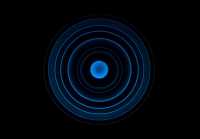
18 Dec Do We Really Need to Avoid Blue Light at Night?
MedicalResearch.com Interview with:
Dr Timothy Brown BSc, MRes, PhD
Senior Lecturer
University of Manchester
MedicalResearch.com: What is the background for this study?
Response: Over the past 20+ years multiple lines of scientific evidence have indicated that short wavelength light is especially effective at re-setting the body clock and driving associated physiological responses in humans and other mammals. This reflects the involvement of a specialised light sensing protein in the retina, melanopsin, which more efficiently detects photons in the short wavelength region of the visible spectrum and has therefore commonly been reported as indicating a major role for ‘blue’ light.
If fact, however, melanopsin does not detect colour. Instead, our perception of colour comes from comparing signals detected by the different types of cone cells in the retina. Importantly then, except under very specific circumstances, there is no correlation between perceived colour and the brightness signals detected by the melanopsin system.
MedicalResearch.com: What are the main findings?
Response: Since, in the natural world, any mammal capable of colour vision will perceive twilight as being relatively blue, compared to the warmer whites of daylight, we hypothesised that blue colours may actually have weaker effects on the body clock. We tested this in mice by generating carefully controlled lighting that had the same brightness for the melanopsin system but differed in its impact on the cone system so as to appear ‘blue’ or ‘yellow’. Importantly, these experiments revealed that bluer colours did indeed have significantly weaker effects on the mouse body clock, reducing the disruptive effects of constant light and the ability of mice to re-align their body rhythms following jet-lag. We go on to show that, from an evolutionary perspective, this action of colour is especially beneficial because it provides a way that mammals can keep their body clock in sync with the natural day-night cycle in the face of the unpredictable variations in light intensity caused by clouds.
MedicalResearch.com: What should readers take away from your report?
Response: A key take-home message of our study is that suggestions that we should avoid ‘blue’ light during the evening should be taken with caution. While evening light exposure can certainly our own disrupt sleep patterns the influence of colour may well be opposite what was previously anticipated. Many current approaches designed to control how light exposure impacts our clock (e.g. via phone and laptop screens), work by reducing short wavelength output. These approaches often produce only a very small change in the brightness signals detected by the melanopsin system. By contrast the same approaches produce very large changes in perceived colour in the wrong direction (i.e. making the light more similar to daytime) that may be counterproductive.
MedicalResearch.com: What recommendations do you have for future research as a result of this work?
Response: Since our research was performed in mice, it will be important to confirm these findings hold true also for humans. There is existing research indicating that effects of light on the body clock in humans may indeed be reduced by blue colours but the same arrangement may not hold true for other physiological responses that can influence sleep.
The research was funded by the Biotechnology and Biological Sciences Research Council (UK).
Citation:
Joshua W. Mouland, Franck Martial, Alex Watson, Robert J. Lucas, Timothy M. Brown.Cones Support Alignment to an Inconsistent World by Suppressing Mouse Circadian Responses to the Blue Colors Associated with Twilight. Current Biology, 2019; 29 (24): 4260 DOI: 10.1016/j.cub.2019.10.028
JOIN OUR EMAIL LIST
[mailpoet_form id="5"]We respect your privacy and will never share your details.
Last Modified: [last-modified]
The information on MedicalResearch.com is provided for educational purposes only, and is in no way intended to diagnose, cure, or treat any medical or other condition. Always seek the advice of your physician or other qualified health and ask your doctor any questions you may have regarding a medical condition. In addition to all other limitations and disclaimers in this agreement, service provider and its third party providers disclaim any liability or loss in connection with the content provided on this website.
Last Updated on December 18, 2019 by Marie Benz MD FAAD
